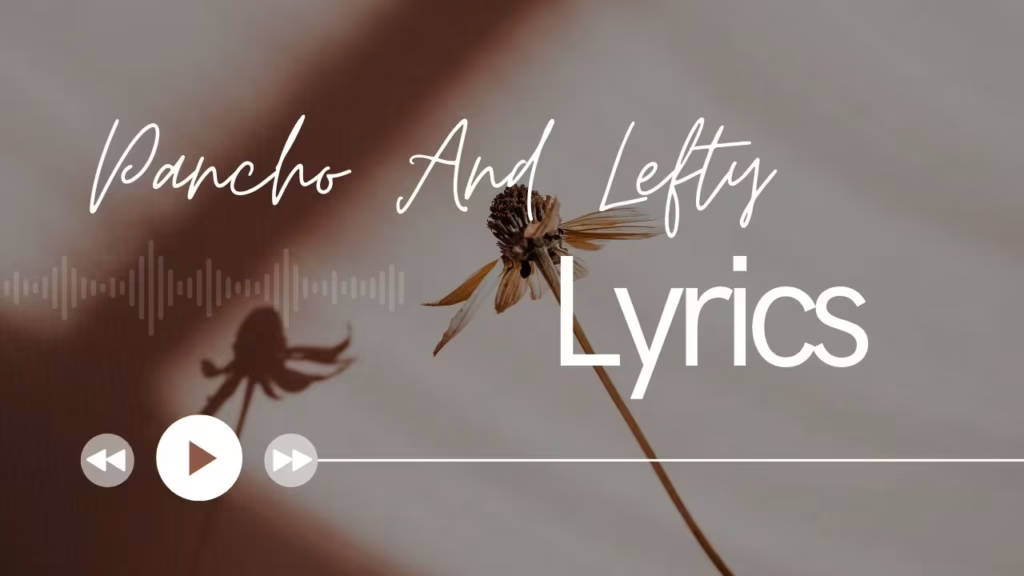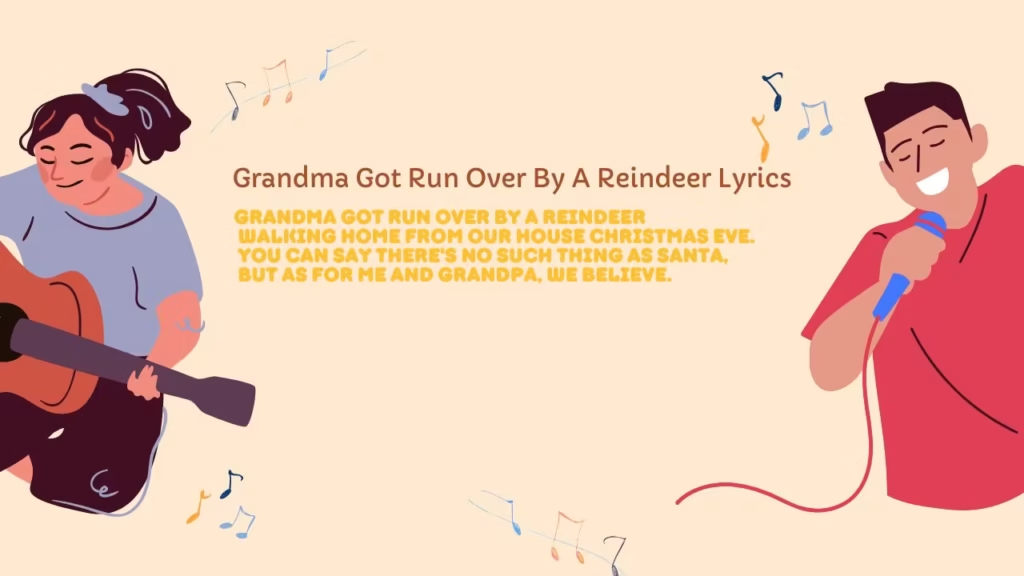Originally penned and released by Townes Van Zandt in 1972, “Pancho and Lefty” quickly became a hidden gem within the folk and country circuits. Van Zandt, a revered yet troubled figure in folk music history, was known for his deeply introspective songwriting and tragic lyricism. His work never achieved significant commercial success during his lifetime, but his influence on American songwriting—especially in the country music genre—cannot be overstated.
Van Zandt’s original version of the song appeared on his The Late Great Townes Van Zandt album. Though not a commercial hit initially, it showcased the themes Van Zandt often returned to: the romance of outlaw life, the specter of betrayal, and the loneliness of freedom. The lyrics are elliptical and open-ended, inviting listeners to imagine the untold parts of the story—a hallmark of great songwriting.
Learn More: Murda She Wrote Chaka Demus Lyrics

Pancho And Lefty Lyrics Breakdown and Meaning
Here’s a verse-by-verse breakdown and interpretation of the lyrics to “Pancho and Lefty” by Townes Van Zandt.
🎵 Verse 1
Living on the road my friend
Was gonna keep you free and clean
And now you wear your skin like iron
And your breath as hard as kerosene
Weren’t your mama’s only boy
But her favorite one it seems
She began to cry when you said goodbye
And sank into your dreams
Meaning:
The outlaw life promised freedom, but it left Pancho worn down and emotionally distant, causing pain to his loved ones.
🎵 Verse 2
Pancho was a bandit boy
His horse was fast as polished steel
He wore his gun outside his pants
For all the honest world to feel
Meaning:
Pancho is portrayed as a proud, bold outlaw who openly defies social norms.
🎵 Verse 3
Pancho met his match you know
On the deserts down in Mexico
Nobody heard his dying words
Ah but that’s the way it goes
Meaning:
Pancho dies in silence and mystery, a fitting end for a mythic outlaw figure.
🎵 Chorus
All the Federales say
They could have had him any day
They only let him slip away
Out of kindness, I suppose
Meaning:
The law claims they let Pancho go out of mercy, but the line hints at secrecy or a possible betrayal.
🎵 Verse 4
Lefty, he can’t sing the blues
All night long like he used to
The dust that Pancho bit down south
Ended up in Lefty’s mouth
Meaning:
Lefty is emotionally broken, likely haunted by guilt over Pancho’s death.
🎵 Verse 5
The day they laid poor Pancho low
Lefty split for Ohio
Where he got the bread to go
There ain’t nobody knows
Meaning:
Lefty disappears with unexplained money, suggesting he may have been paid to betray Pancho.
🎵 Chorus
All the Federales say
They could have had him any day
We only let him slip away
Out of kindness, I suppose
Meaning:
Repetition of the chorus reinforces suspicion and moral ambiguity.
🎵 Verse 6
The poets tell how Pancho fell
And Lefty’s living in cheap hotels
The desert’s quiet, Cleveland’s cold
And so the story ends we’re told
Meaning:
Pancho becomes a legend, while Lefty lives in obscurity and regret in a distant, cold place.
🎵 Verse 7
Pancho needs your prayers it’s true
But save a few for Lefty too
He only did what he had to do
And now he’s growing old
Meaning:
Both men deserve sympathy—Pancho as a fallen outlaw, and Lefty as a man burdened by survival and aging guilt.
🎵 Final Chorus
A few gray Federales say
We could have had him any day
We only let him go so long
Out of kindness, I suppose
Meaning:
The final chorus, spoken by aged lawmen, suggests the story has faded into legend and uncertainty.
Themes and Symbolism
- Pancho symbolizes the romanticized outlaw—charismatic, doomed, and ultimately betrayed.
- Lefty, on the other hand, may represent the everyman—the survivor, the betrayer, the one who lives on not triumphantly, but in moral exile.
- The song resists clear resolution. Is it a political allegory? A parable about friendship and betrayal? Or simply a folk tale spun from bits of Western mythos?
That’s the beauty of “Pancho and Lefty.” Like all great ballads, its story deepens with every listen.
Popular Covers and Production
The song gained monumental fame when Willie Nelson and Merle Haggard recorded their version in 1983 for their collaborative album Pancho & Lefty. Their rendition transformed the once obscure ballad into a mainstream hit, reaching #1 on the Billboard Hot Country Songs chart.
The Nelson-Haggard version featured a sparse, moody arrangement that highlighted the song’s emotional weight. Their contrasting voices—Nelson’s nasal softness and Haggard’s gravelly baritone—enhanced the narrative tension between the two characters. The accompanying music video, shot in Mexico, adds a visual layer to the song’s mythology, showing Pancho’s dramatic execution and Lefty’s quiet regret.
Other notable covers include those by Emmylou Harris, Steve Earle, and Gillian Welch, each bringing unique emotional textures that further testify to the song’s timeless resonance in the outlaw country and folk traditions.


